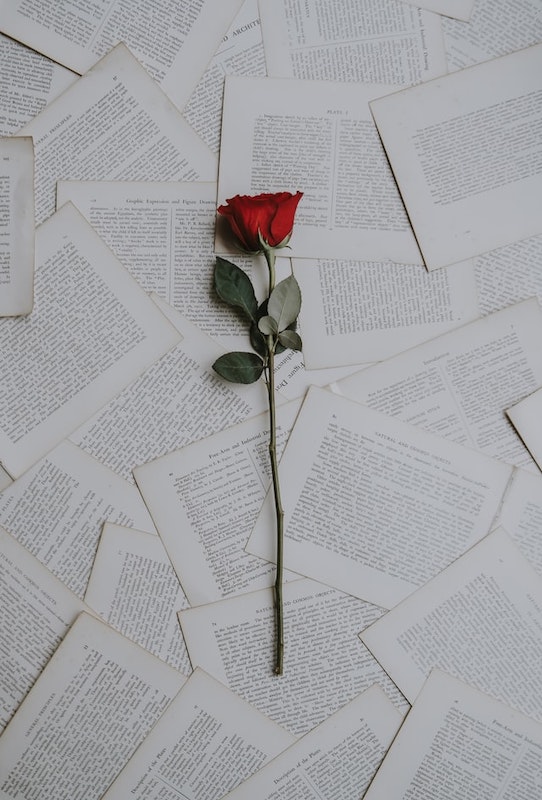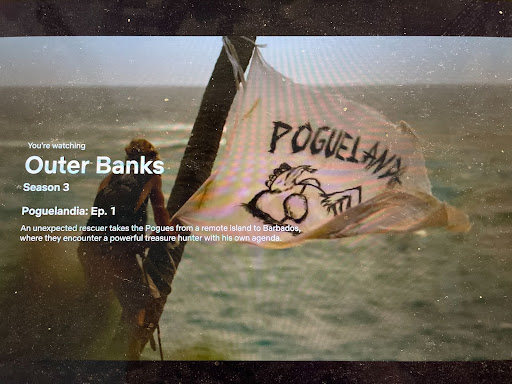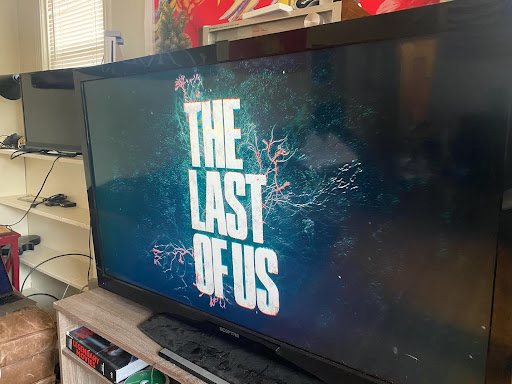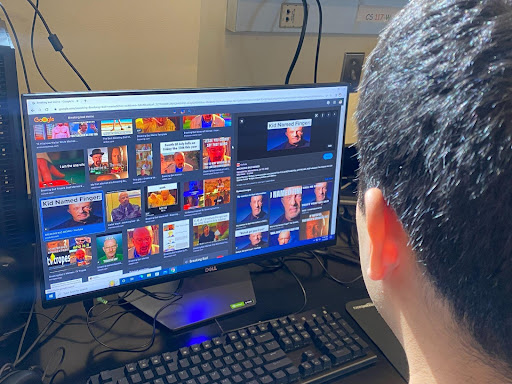On Friday, Feb. 19, Loyola SGA presented A (virtual) Night with Rachel Lindsay. Lindsay is an attorney, media host, podcaster, and former Bachelor contestant turned Bachelorette. For a number of years, Lindsay worked in litigation, however she currently works for Extra TV and MTV’s Ghostin’, as well as two podcasts: Bachelor Happy Hour with Becca Kufrin and Higher Learning with Van Lathan. She was notably the first Black Bachelorette and has long been an advocate for diversity in “The Bachelor” franchise.
Lindsay is originally from Texas, but she now lives in Los Angeles. She attended the University of Texas at Austin and happily switched her major from government to sports management. In college, she was in a sorority, a part of the African American Culture Committee, and worked for the athletic department. She later interned with the Milwaukee Bucks. When asked what she wished she knew in college, she shared that she wished someone would have asked her: “Are you living the life you want to live? Or are you following what other people want you to do?” These questions have motivated her throughout her life.
Lindsay recalled applying to work for ESPN after her time on “The Bachelorette” and being denied because they believed people would only see her for the glitz and glam of the show, and not as a qualified reporter. She also mentioned being told, “You’re too pretty to be an attorney, you should be on TV,” by men while she was practicing law. However, these sexist comments only motivated her, as did the refusal from ESPN.
She had to reinvent herself after her time as the Bachelorette because she knew the world would not recognize that she had a successful career and life before TV. Lindsay emphasized the importance of self-growth:
“You will change and change again,” she said. “You have to be open to the path that life takes you.” She expressed that if she had listened to the “no’s” she received in the past, she wouldn’t be where she is today.
Lindsay spoke about who her closest friends were while she was a contestant on season 21 of The Bachelor. She recounted her friendships with Astrid, Whitney, Christina, and Alex, but maintained that she is cool with everyone from her season.
In terms of a cultural divide between the contestants on The Bachelor, Lindsay feels that she didn’t feel that there was one. She reiterated that her season did not feel competitive because the group of women was very unique in that there were no divides amongst them.
Luckily, Lindsay was able to shed some light on the theatrics of the typical Bachelor rose ceremony. She laughed as she explained that there is no way for the lead to remember everyone’s names in the beginning weeks. The lead only says three or four names at a time before disappearing and returning with more names. Also, it is important for many different camera angles to be captured as this is one of the most dramatic parts of the show.
Speaking of her time as the first Black Bachelorette in the show’s history, she detailed the importance and helpfulness of her background as a lawyer. She explained how she trusted her instincts and asked all of the right questions, which ultimately led her to her husband, Bryan Abasolo. Due to her past relationships, she felt comfortable separating infatuation from true acts of love. However, she did recount how romantic the show’s environment truly is, which can cause a person to get caught up in the romanticism.
Lindsay did not feel much pressure when she agreed to be the Bachelorette. She knew her role would be historic, but she didn’t actually believe that she would fall in love. When she fell in love with her husband, she remembers it being a “beautiful surprise” that swept her off her feet.
When asked how it was possible for her to fall in love with multiple people, Lindsay reminded the audience of the lack of distractions in the Bachelor environment. With no outside inputs, no phones and no people outside of their “bubble,” she explained how vulnerable and open she felt. She saw each of her relationships differently:
“There are feelings to love, different levels to it,” she said.
The final four men on her season were all on different levels for her. However, she remembers specifically asking herself, “Who makes sense? Who can I really see myself spending the rest of my life with? And it was Bryan.”
With all of the attention being on her as the Bachelorette, Lindsay had to grant herself moments of privacy. She emphasized the importance of therapy, and how therapy has dramatically shaped her life before and after the show. She also spent a great deal of time writing, meditating, and thinking deeply. She also explained the importance of having a balance of sharing some things about herself on the show but not necessarily sharing everything on TV.
Lindsay is grateful that the show taught her to be comfortable with being vulnerable. She keeps a small and close circle of friends in her life and she cherishes how vulnerable they can be with each other.
“Doing the show, I became more vulnerable with talking about my feelings and now I crave that,” she shared. Her openness, which she can attribute to her experience on TV, has served her personal relationships and helped her process recent events such as the Black Lives Matter movement. She described how upset she has felt for the last year, and how disenchanted she feels towards the Bachelor franchise and ABC Network.
Lindsay’s time as the Bachelorette was particularly significant as the first Black lead for the franchise. When she agreed to be the Bachelorette she was excited to represent her community and pave the way for future members of Bachelor Nation. She spoke of Vice President Kamala Harris, and how representation is so important for the BIPOC community.
Lindsay touched on the fact that, typically, we don’t see Black women being adored and chased after on TV, but she was thrilled to change that with her role. She described her experience as the Bachelorette as what she was “supposed to do” and that it felt extremely “fulfilling.” However, she did point out that there were times on set that she felt very alone and knew that she needed to speak out and do more within the franchise. She has since become a pivotal part of the Bachelor’s diversity campaign, and she has routinely called out the franchise for neglecting to address past and current issues regarding race.
In the last three weeks, there has been controversy surrounding Rachael Kirkconnell, the frontrunner on Matt James’ current season of the Bachelor, and Chris Harrison, the Bachelor franchise’s long-running host. After photos emerged of Rachael Kirkconnell attending a deep South antebellum plantation-themed sorority party in 2018, Harrison sat down with Lindsay on an episode of Extra TV and excused the contestant’s past racist actions. This prompted a swift backlash from fans, and Harrison has since said that he will be stepping away from the franchise for some time. There was an outpouring of support from past and current Bachelor Nation members for Lindsay, who handled the disappointing interview with grace.
When asked about the recent events, Lindsay paused for a moment. She admitted that she had been thinking about leaving the Bachelor Happy Hour podcast for some time now, but she thinks this is her sign that she needs to move on. She explained how tired she feels, being one of the few that so loudly and unapologetically calls out issues at the hands of the franchise. She explained, “I don’t feel like I’m making a difference anymore,” and that “Maybe the change will come from me stepping away.”
However, that doesn’t mean that Lindsay will stop fighting for what is right. She simply feels that her work can be continued, unassociated from the franchise. As she said,
“I have to protect my own sanity and my own mental health.”
In terms of Chris Harrison, Lindsay said she was “shocked, not surprised” at his comments being made so publicly. But she sincerely appreciated the women from Matt James’ season coming together in a joint statement to reject Harrison’s comments and support Lindsay.
Lindsay concluded with offering advice to those who want to be allies of the BIPOC community. She acknowledged,
“We live in a climate where people are very quick to cancel, or judge you…but being an ally, I don’t think you should be afraid.”
She suggests that if you want to be an ally, you should seek information from someone that you know and trust:
“You seeking knowledge on your own and asking questions from someone that you trust, that is the way to go about [being an ally].”
She also emphasized the importance of listening and embracing being uncomfortable and scared.
“When you fail, you pick yourself up, and you learn from it and you’re better for it,” she said.
Lindsay is an inspiration and her advice is extremely honest and heartfelt. Her career has been, and will continue to be, sensational, as she is a captivating force that is so relatable, yet so knowledgeable.
To end on her last piece of advice,
“You can’t get complacent in anything, because there is more work to do.”
Featured Image courtesy of Annie Spratt via Unsplash


















































































































